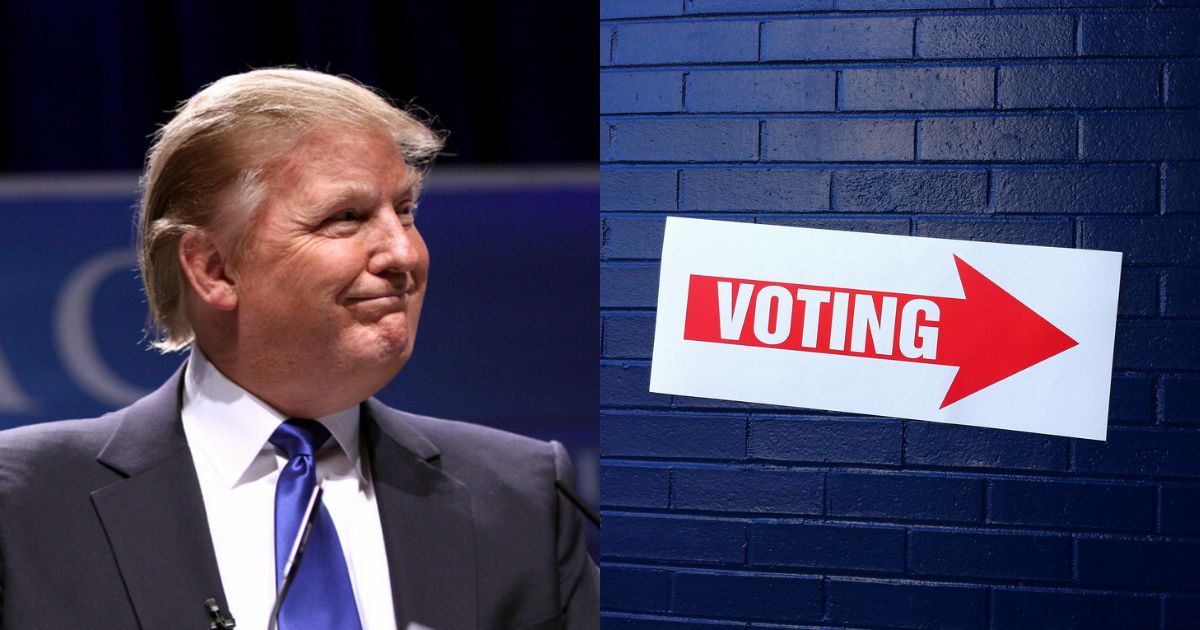In a change of course, President Donald Trump has put his signature on an executive order that now asks all individuals who wish to sign up to vote in the US to provide evidence that they are indeed American citizens.
This new rule also means that all voting papers, especially the ones that are mailed in, must be in the hands of the counting officials by the time the polls close on Election Day itself. No more leeway afterwards.
This substantial move took place on the 25th of March and comes with a bit of a stick for those who don’t follow it: if states don’t play by these new rules, they might not get their share of federal funds for running elections.
Besides, the President has given the Department of Homeland Security a new job: making sure that everyone on the voting lists is a citizen of the USA. Federal agencies have now got the green light to double-check these lists themselves.
At a special signing event at the White House, President Trump expressed his feelings on the matter, saying, “This country is so sick because of fake elections and bad elections, and we’re going to fix that one way or another.”
This big step has, naturally, stirred up quite the hornet’s nest. Some folks, mainly those in the Republican camp, are praising it as a much-needed step to safeguard the sanctity of our electoral process. On the flip side, Democrats and groups that focus on civil rights are raising alarm bells, suggesting that this could prevent millions of people who have every right to vote from doing so.
🚨 TRUMP SIGNS EXECUTIVE ORDER TO SEIZE CONTROL OF FEDERAL ELECTIONS—AND MILLIONS COULD LOSE THEIR RIGHT TO VOTE
Let’s be clear: This isn’t about “election integrity.” This is a direct assault on democracy, and if it stands, it could disenfranchise millions of eligible… pic.twitter.com/bCLiQNyI3e
— 🌊 R Saddler (@Politics_PR) March 26, 2025
The Trump administration has presented the executive order as a protective measure to combat election fraud, which has been a key point in both the former President’s and the current President’s political discussions.
According to a White House information sheet, “Federal election-related funds will be conditioned on states complying with the integrity measures set forth by federal law, including the requirement that states use the national mail voter registration form that will now require proof of citizenship.”
Trump has often said, without actual proof, that the 2020 election had a lot of fraudulent voting, especially by people who are not citizens of the United States. Even though research shows that non-citizens rarely vote illegally, his supporters are still pushing for tighter election rules.
Michael Whatley, who leads the Republican National Committee (RNC), said, “We are ensuring that only Americans vote in our elections.” He thinks of this as “A commonsense measure to uphold democracy.”
Chairman of the Republican National Committee Michael Whatley will be speaking at CPAC in DC 2025.
Whatley was elected to RNC chair in March of 2024 and led the RNC through the 2024 election and President Donald Trump’s victory. He led the RNC through efforts to clean up… pic.twitter.com/UPrfcq9pB7
— CPAC (@CPAC) February 18, 2025
The part of the order that doesn’t let mail-in ballots be counted if they come in after Election Day is also in line with what Republicans are trying to do to limit this type of voting. In the 2020 election, due to the coronavirus, substantially more voters cast ballots by mail.
The National Conference of State Legislatures reports that in 18 states, Washington, D.C., and certain US territories, they tabulate mail ballots sent prior to Election Day, even if they are not received until afterward.
Voting rights activists and leading Democrats also soon condemned the new directive, branding it a blow to the very essence of democracy and the right to vote established in the Constitution.
Opponents are especially worried that this measure disproportionately targets particular groups, including minorities, poorer individuals, and elderly individuals, who might lack the required documentation, such as passports or birth certificates at hand.
Lisa Gilbert, co-president of the activist group Public Citizen, has come out strongly against the move, labeling it “a blatant attack on democracy and an authoritarian power grab. “Donald Trump’s executive order would put our election systems at risk, disenfranchise millions of Americans—particularly voters of color—and set the stage for further unfounded allegations of election fraud,” she said.
Election law scholar Richard Hasen of the University of California reiterates these fears. “This would stop only a tiny percentage of non-citizen registrations while possibly excluding millions of eligible voters who do not have easy access to proof of citizenship,” he posted on his Election Law Blog.
With the forthcoming legal challenges on the horizon, organizations like the American Civil Liberties Union (ACLU) and the Brennan Center for Justice stand ready to challenge the legality of the order before federal courts. The executive measure represents a big departure from how the federal government has historically regarded election administration within the United States, as state governments normally establish voter registration rules.
The American Civil Liberties Union (ACLU) announced a lawsuit over President Donald Trump’s executive order seeking to end birthright citizenship for children born in the U.S. to noncitizen parents.#usa #DonaldTrump #citizenship pic.twitter.com/Tis0vHRuw0
— Muslim Network TV (@MuslimNetworkTV) January 23, 2025
This action by Trump comes as part of a series of actions by Republicans to harden voting laws, particularly following the 2020 election. In 2023, the Republican-held House approved a bill, the Safeguard American Voter Eligibility Act, that would make it more difficult for non-citizens to register to vote in federal elections.
Even though it is already illegal, the purpose of the bill was to impose stricter documentation requirements. Unfortunately for its proponents, it failed to pass the Senate, which Democrats controlled at the time.
The aftermath of this executive order is likely to be a dominant theme in US politics.









